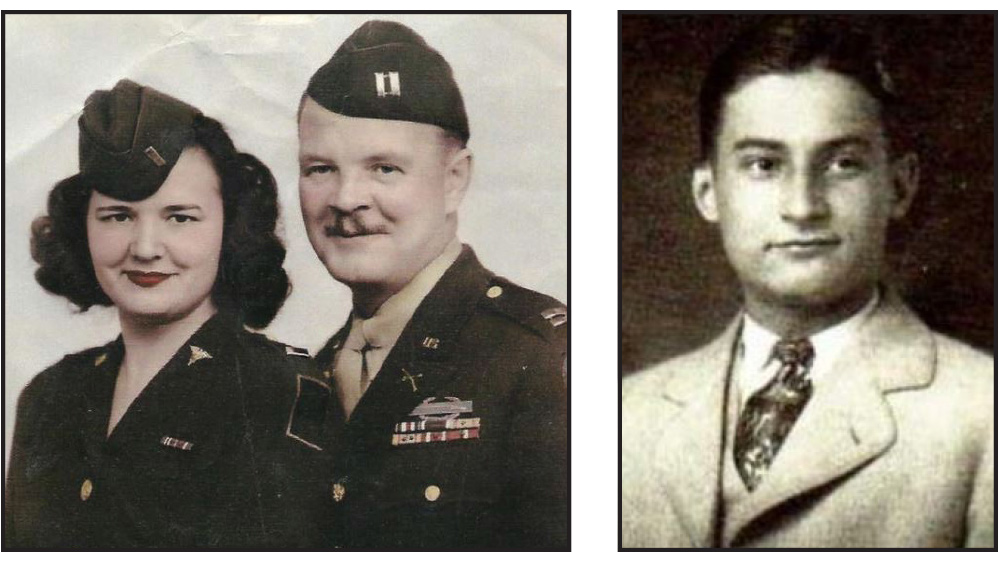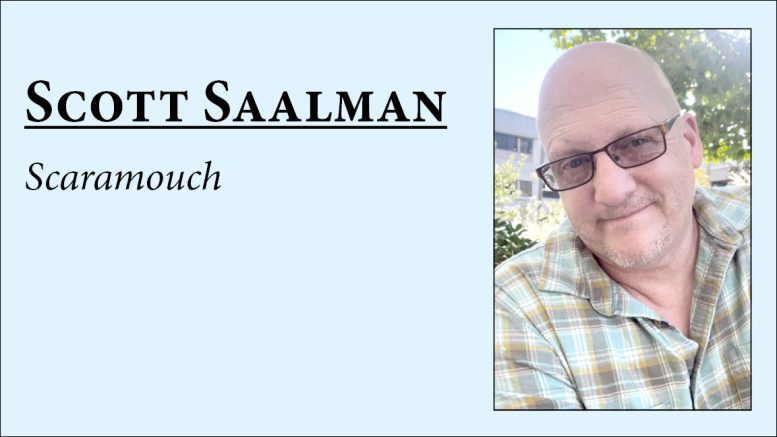Last Memorial Day, I received from out of the blue a soul-stirring message from a stranger, Park Guthrie, of Sebastopol, Calif.
Wrote Park, “I was Googling your great-uncle because he was friends with my great-uncle, Kenneth Beach, in the Japanese POW camps in the Philippines. My great-uncle Kenny died in Otis’s arms after two of their unmarked POW ships were bombed by American planes. Otis wrote my great-grandmother to give his condolences and give a first-hand account of the end of his life. I thought you might appreciate this letter.”
My great-uncle was Major Otis Saalman, who, during World War II, was a POW for three years in the Philippines (he was a Captain then), where he somehow survived the horrors of Japanese prison camps, prison ships, and the Bataan Death March.
I was well aware of Otis’ war experiences largely due to a harrowing 7,000-word account he wrote for the Tell City News not long after the war ended. My grandparents saved a copy, and I often reread Otis’ firsthand, heroic accounts involving bullets, bayonets, beheadings, and other atrocities that occurred in the Pacific Ocean theater.
But the typewritten letter sent by Park was totally new to me. Dated Feb. 26, 1946, it was addressed to Mrs. D. E. Beach, of Chelsea, Mich. The letter provides an intimate glimpse into the mind of a soldier who wrote not only of a fallen comrade, but of a best friend.
Here is Otis’ letter. (Note: I did fix a few spelling and punctuation issues.)
Dear Mrs. Beach:
May I please ask your forgiveness for not writing to you sooner, but I have been in the hospital for some time, and I had lost your address until today. In going through some of my baggage which just recently arrived from overseas I found the identification tags which I am enclosing.
I realize how fruitless any word of mine may be in trying to heal the wound which no doubt has pierced deeply within your heart when your son Captain Kenneth O. Beach never came home.
To begin with I wish to tell you that Kenneth was the best friend that I ever had or ever expect to have. His passing away was about the hardest shock I suffered in this war. I say this realizing what it must mean to his mother. No doubt the War Department has by now notified you concerning his death which occurred on a prison ship enroute from the Philippine Islands to Japan in January 1945.
We left Manila on Dec. 13, 1944, and on the second day out we were attacked by American dive bombers. Our ship was hit many times and finally burst into flames, and we were forced to jump overboard. Kenneth and I went over at the same time. He was sick at the time, and I swam ashore with him helping him all I could. When we reached shore we were recaptured and later put on another ship and reached the island of Formosa. Here we were again attacked by American dive bombers on the morning of Jan. 13, 1945. Kenneth and I were sitting side by side just eating our small handful of rice when a bomb hit our ship and Kenneth suffered a broken right leg and a fractured left arm. I was hit in the right hand by the same piece of shrapnel that fractured his left arm. I did everything I could for him but there was no medicine available, and he died a few days later. His last words to me were to notify you and the girl whom he was engaged that he wouldn’t be home, and that he thought of you both as well as the remainder of the family up to the very last. He knew he could not make it although I kept trying to keep him cheered up to the very end. He died a true soldier. He was not afraid to die. I am sure that if he would have had his choice of death he would have chosen the most glorious of dying in battle, but God decides such questions. He was buried at sea somewhere between Formosa and Okinawa. Someday soon I hope to see you and talk to you personally, as he and I had many things planned that we were going to do.
One thing I would like to ask of you and that is if you have a picture of him I would like to get one made off it for myself.
I am not too sure, but I think the date of his death was Jan 26th. We were put on another ship, and he died while on it. Although his death did lack the glory of dying on the field of battle, he gave his life just as freely for the cause for human freedom as any who fell in front of the salvo of enemy guns. His was the supreme sacrifice for God and country and I am sure that he was received with open arms by Him who holds the power of destiny over us. May God always bless his brave and good soul and may I ask God to bless you as his mother. Let me hear from you and always remember that I am at your service.
Sincerely yours,
O. Edward Saalman
Capt. Infantry-AUS

(Above left) Otis, right, and wife Agnes, left. While Otis was a POW in the Pacific, Agnes, a lieutenant in the Army Nurse Corps, served in the European Theater as a front-line nurse in the Battle of the Bulge. She was also among the first to help liberate the Bergen-Belsen concentration camp in northern Germany, where Anne Frank and an estimated 50,000 people perished. (Above right) Kenneth Beach. (Photos provided by Scott Saalman)
Contact: scottsaalman@gmail.com. You can read more about Major Saalman in Scott’s book of serious newspaper columns, “Mr. Serious,” available on Amazon.

